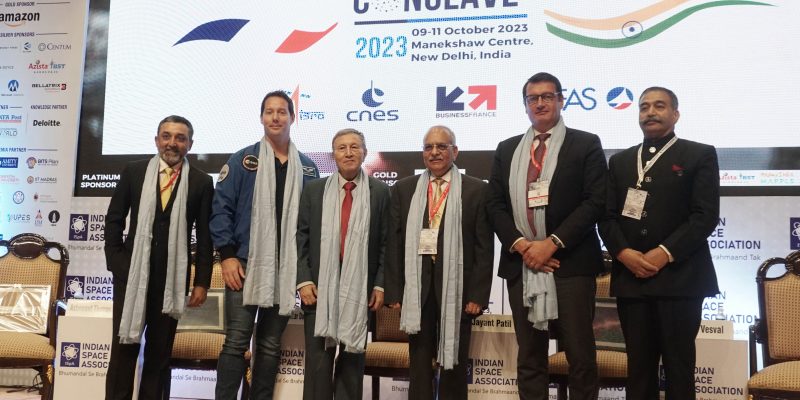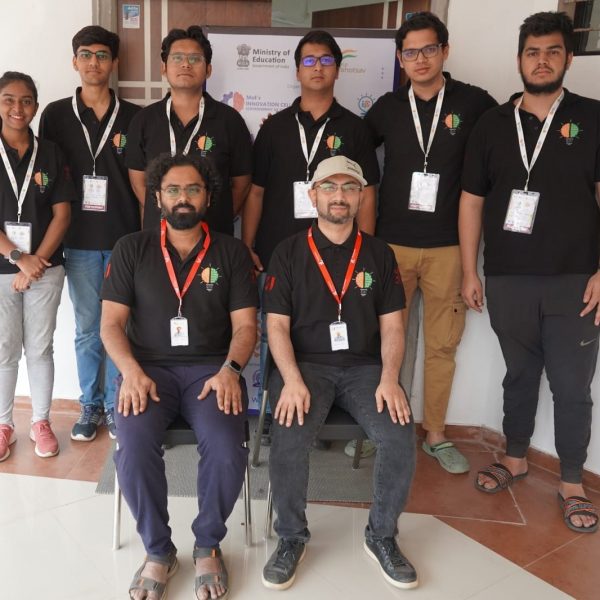Trailblazing into Tomorrow: Anticipating India’s Private Space Revolution in 2024 with FDI and Space Activity Bill
In a stellar display of prowess, India soared to new heights in 2023 with the successful launch of Chandrayaan-3 and the Aditya-L1, India’s first solar mission. These milestones not only secured India’s standing in the global space economy but also fueled the engines for the private space sector in India.
This year, India inked strategic alliances with the USA and France, especially USA signing the pacts on emerging technologies agreement between the two space agencies and joining the crucial Artemis Accord. Also, the declaration by the two governments for future cooperation in space has now manifested in NISAR coming to India in March this year and likely to be launched in the first quarter of next year, which is a testament to India’s commitment to global space exploration.
While all this is happening in the government sector, the private sector also witnessed major milestones in this year. Firstly, we had the launch of the second batch of 36 satellites of OneWeb by ISRO/NSIL in March 2023. Furthermore, OneWeb India recently became the first company to receive approval from Indian space regulator IN-SPACe for satellite broadband services. The company is soon to roll out space-based communication services in India. The company is soon to roll out space-based communication services in India. Marking a significant milestone for India’s burgeoning satellite communication sector, the Telecommunications Bill, 2023, recently secured legislative approval with its passage through both houses of Parliament. This landmark legislation paves the way for the administrative allocation of satellite spectrum in India.

Lt. Gen. AK Bhatt (Retd.), Director General, Indian Space Association
Lt. Gen. AK Bhatt, Director General, Indian Space Association said, “The decision by the government to allocate the satellite spectrum through a globally harmonized administrative method in the Telecommunications Bill, 2023 will pose a greater good for the nation and will spur growth in the nascent space industry, especially the downstream sector, foster healthy competition, and ensure a level playing field for all stakeholders involved. The satellite broadband will hold the biggest market for space related activities and will be the bridge to narrow the digital divide in the country by reaching the remotest rural locations where terrestrial networks haven’t yet penetrated. With these positives, the correct method of allocation of satellite spectrum through administrative method would be critical for this momentum to get carried forward in the lead private commercialization domain, which is satellite communication and also allow new players to enter the market.”
India’s Dynamic Space Startup Landscape
In April 2023, Dhruva Space launched its 3U and 6U Satellite Orbital Deployers and its Dhruva Space Satellite Orbiter Link (DSOL) onboard ISRO’s PSLV C55, as part of POEM-2. We also witnessed the successful launch of first satellite ABA First Runner (AFR) by Azista-BST. Though it happened from SpaceX launcher, but it was a satellite by Indian company Azista which was launched in June. In October, Skyroot Aerospace, based in Hyderabad inaugurated India’s largest private integrated rocket development facility under a single roof and also revealed Vikram-1, a multi-stage launch vehicle with seven storeys. This innovative rocket has a payload capacity of approximately 300 kg and the ability to deploy satellites into lower earth orbit (LEO)
Lt. Gen. AK Bhatt, Director General, Indian Space Association said, “The Indian space startups have become a strong pillar for the private space industry in the last decade, especially after the landmark move of opening the Indian space sector to private companies by our Hon’ble PM Shri Narendra Modi back in 2020. With a total funding of $123.90 million received in 2023, India’s space startups are not just stargazers but trailblazers in the commercial space race. This takes the total funding to $380.25, received by the Indian space startups till date. In the past year, a total of 54 new space startups have emerged, bringing the current count of space startups in India to 204.”
New Space Policy Unleashed
Then of course, the New Space Policy 2023 was announced. Though the intention had been given by the government in June 2020, but the policy in black and white came in April 2023. This is a landmark policy because it allows private players to carry out all activities in all possible verticals, from launch vehicles, communications, applications, to even carry out asteroid mining in the future. It also establishes IN-SPACe as a regulatory agency.
Giving an outlook of the policy related developments for 2024, Lt. Gen. AK Bhatt, Director General, Indian Space Association said, “Policy wise, the eagerly awaited Foreign Direct Investment (FDI) Policy which would be critical for the development of space sector, is in the final stages of being announced by the government. We also expect the Space Activity Bill to be discussed in the parliament which will cover various factors of India’s space goals, including insurance in space, international and national obligations, define offences and subsequent punishments, barriers of entry for private companies, liability for damages caused in space etc. These policies will help solidify the industry’s position and create more opportunities for the industry to grow at a much higher pace than before. We believe once the FDI Policy is in place, funds will flow from Indian big companies once it becomes profitable. There will be financial incentives to private players to be able to operate and they will be able to get finances not only from the country, but from international sources too.”
Private Space Odyssey Continues
In the private sector, recently, Tata Advanced Systems also announced that it has entered into a collaboration with Satellogic Inc for establishing and developing local space technology capabilities in India. The production of five PSLV rockets by HAL-L&T consortium is also in its advanced stage. Skyroot is gearing up to expand their operations and are likely to have an orbital launch most likely in January 2024. Similarly, Agnikul also recently announced that they have been able to do the ground tests and would be launching their rocket very soon. In fact, their launch pad in Sriharikota has been made ready with the cooperation of ISRO. The Bengaluru-based spacetech start-up Pixxel also recently announced their plans to launch 24 satellites in the next two years, focused on launching the first six of the 24-satellite constellation Fireflies in 2024 and 18 in 2025.
Lt. Gen. AK Bhatt, Director General, Indian Space Association said, “As the private space sector in India propels forward with unprecedented collaborations, groundbreaking launches, and visionary policies, the Indian private space industry is set for a revolution in 2024. With strategic alliances, a thriving startup ecosystem, and the announcement of critical policies like the Foreign Direct Investment (FDI) and the Space Activity Bill, India’s trajectory in space exploration is poised for a quantum leap. The convergence of governmental support, industry innovation, and international partnerships marks not just a chapter but a resounding proclamation of India’s role in the global space arena.”
Opportunities and Developments Await in 2024
As we approach 2024, the Indian private space sector is buzzing with anticipation. Skyroot Aerospace is gearing up for an orbital launch scheduled for January 2024. The company’s ongoing efforts contribute to diversifying satellite launch services within the private space sector. Agnikul is also poised to make a significant impact with the impending launch of its rocket, and its collaboration with ISRO has readied the launch pad in Sriharikota. In a parallel trajectory, Spacetech start-up Pixxel harbors ambitious plans to expand its satellite constellation, targeting the launch of 24 satellites over the next two years, with the initial deployment of six satellites, named Fireflies, in 2024. Similarly, Azista-BST is set to continue its satellite deployment activities. MapmyIndia, a pivotal player in spatial technology, is anticipated to make significant strides in the field of IoT-based products in the coming year. The realization of the collaboration between HAL and L&T is eagerly awaited, particularly regarding the production of five PSLV rockets. This partnership signals an expansion of capabilities in both the manufacturing and launch of reliable space vehicles, contributing to India’s launch vehicle portfolio. Indian space companies and startups anticipate receiving firm orders from the defense sector in the upcoming year, reflecting the growing synergy between the private sector and government entities.
Lt. Gen. AK Bhatt, Director General, Indian Space Association said, “These opportunities and developments underscore the vibrancy and potential of India’s private space sector. With a convergence of technological advancements, policy support, and international collaborations, the private space industry is on the cusp of a transformative year, marking a new chapter in India’s space exploration journey.”







